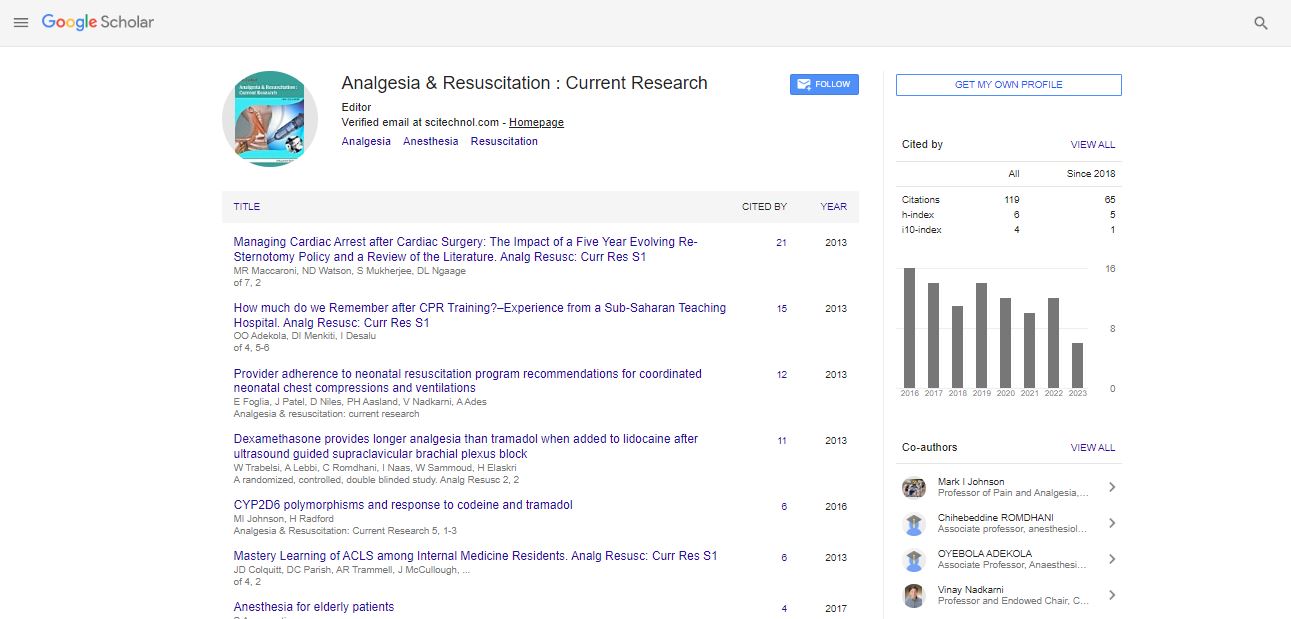Effect of molecular weight on thermal properties of Poly (ethylene oxide)
Srinath Muppalaneni, David Mastropietro and Hossein Omidian
Nova Southeastern University, USA
: Analg Resusc: Curr Res
Abstract
Poly (ethylene oxide) (PEO), a water soluble linear polymer, is supplied in various molecular weights ranging 100,000 to 10,000,000 Daltons. Pharmaceutical applications of PEO include being used as an agent to enhance viscosity, binding, film forming, osmotic, and controlled release properties. PEO can be processed along with active and other excipients utilizing conventional dry compaction, wet granulation, and hot melt extrusion technologies. The latter being a preferred method of formulating PEO based abuse-deterrent pain medications. The main objective of this study was therefore to determine the influence of molecular weight on the thermal properties and degradation of PEO. The commercial grades of PEO selected for this study were Polyox™ WSR 205, 1105, N12k, N60k, 301, coagulant, and 303 having respective average molecular weights of 600K, 900K, 1M, 2M, 4M, 5M and 7M. Measurement of melting point, heat of fusion, and degradation was investigated by differential scanning calorimetry (DSC) in combination with thermo gravimetric analysis (TGA). Results were obtained in the temperature range of 25-445oC for DSC (Perkin Elmer DSC 4000) and 30-500oC for TGA (PerkinElmer TGA 4000) at a rate of 10oC/min while under a nitrogen blanket (20 mL/min). The melting points of Polyox WSR 205, 1105, N12k, N60k, 301, coagulant and 303 grades were found at approximately 76.87, 77.42, 76.6, 79.34, 77.19, 77.79 and 79.22oC respectively. Heat of fusion was calculated to be approximately 136.75, 160.37, 150.02, 152.49, 153.75, 163, 154.06 J/g, respectively. Thermal degradation was observed around 400oC and was confirmed with thermo gravimetric analysis. Inflection point of all grades was 421.76, 415.29, 416.28, 415.6, 416.1, 414.43 and 416.69oC, respectively. In general, DSC measurements show no differences in thermal properties of the tested PEOs with change in molecular weight.
Biography
Srinath Muppalaneni earned a BS in Pharmacy from Andhra University and a MS in Pharmaceutical Sciences from Campbell University. He is currently a Doctoral candidate in Pharmaceutics at Nova Southeastern University (NSU) with dissertation research focusing on abuse-deterrent formulations. David Mastropietro received his BS in Pharmacy from Massachusetts College of Pharmacy and PhD in Pharmaceutics from NSU. Hossein Omidian has a MSc in Chemical Engineering and a PhD in Polymer Science. He is currently an Associate Professor at NSU and leads the research group in Advanced Pharmaceutical Dosage Forms.
 Spanish
Spanish  Chinese
Chinese  Russian
Russian  German
German  French
French  Japanese
Japanese  Portuguese
Portuguese  Hindi
Hindi 
